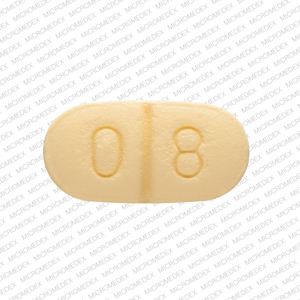Mirtazapine Interactions
There are 673 drugs known to interact with mirtazapine, along with 13 disease interactions, and 2 alcohol/food interactions. Of the total drug interactions, 141 are major, 528 are moderate, and 4 are minor.
- View all 673 medications that may interact with mirtazapine
- View mirtazapine alcohol/food interactions (2)
- View mirtazapine disease interactions (13)
Most frequently checked interactions
View interaction reports for mirtazapine and the medicines listed below.
- Abilify (aripiprazole)
- Adderall (amphetamine / dextroamphetamine)
- Ambien (zolpidem)
- Aspirin Low Strength (aspirin)
- Ativan (lorazepam)
- Benadryl (diphenhydramine)
- Cymbalta (duloxetine)
- Eliquis (apixaban)
- Fish Oil (omega-3 polyunsaturated fatty acids)
- Klonopin (clonazepam)
- Lamictal (lamotrigine)
- Lexapro (escitalopram)
- Lipitor (atorvastatin)
- Lyrica (pregabalin)
- Metoprolol Succinate ER (metoprolol)
- Metoprolol Tartrate (metoprolol)
- MiraLAX (polyethylene glycol 3350)
- Paracetamol (acetaminophen)
- Prozac (fluoxetine)
- Seroquel (quetiapine)
- Synthroid (levothyroxine)
- Tylenol (acetaminophen)
- Vitamin B12 (cyanocobalamin)
- Vitamin C (ascorbic acid)
- Vitamin D3 (cholecalciferol)
- Vyvanse (lisdexamfetamine)
- Xanax (alprazolam)
- Zofran (ondansetron)
- Zoloft (sertraline)
- Zyrtec (cetirizine)
Mirtazapine alcohol/food interactions
There are 2 alcohol/food interactions with mirtazapine.
Mirtazapine disease interactions
There are 13 disease interactions with mirtazapine which include:
- renal/liver disease
- pheochromocytoma
- bipolar screening
- depression
- hypotension
- neutropenia
- mania
- ALT elevations
- hyperlipidemia
- hyponatremia
- mania/hypomania
- seizures
- glaucoma
More about mirtazapine
- mirtazapine consumer information
- Compare alternatives
- Pricing & coupons
- Reviews (2,099)
- Drug images
- Side effects
- Dosage information
- Patient tips
- During pregnancy
- Support group
- Drug class: tetracyclic antidepressants
- Breastfeeding
- En español
Related treatment guides
Drug Interaction Classification
| Highly clinically significant. Avoid combinations; the risk of the interaction outweighs the benefit. | |
| Moderately clinically significant. Usually avoid combinations; use it only under special circumstances. | |
| Minimally clinically significant. Minimize risk; assess risk and consider an alternative drug, take steps to circumvent the interaction risk and/or institute a monitoring plan. | |
| No interaction information available. |
See also:
Further information
Always consult your healthcare provider to ensure the information displayed on this page applies to your personal circumstances.


